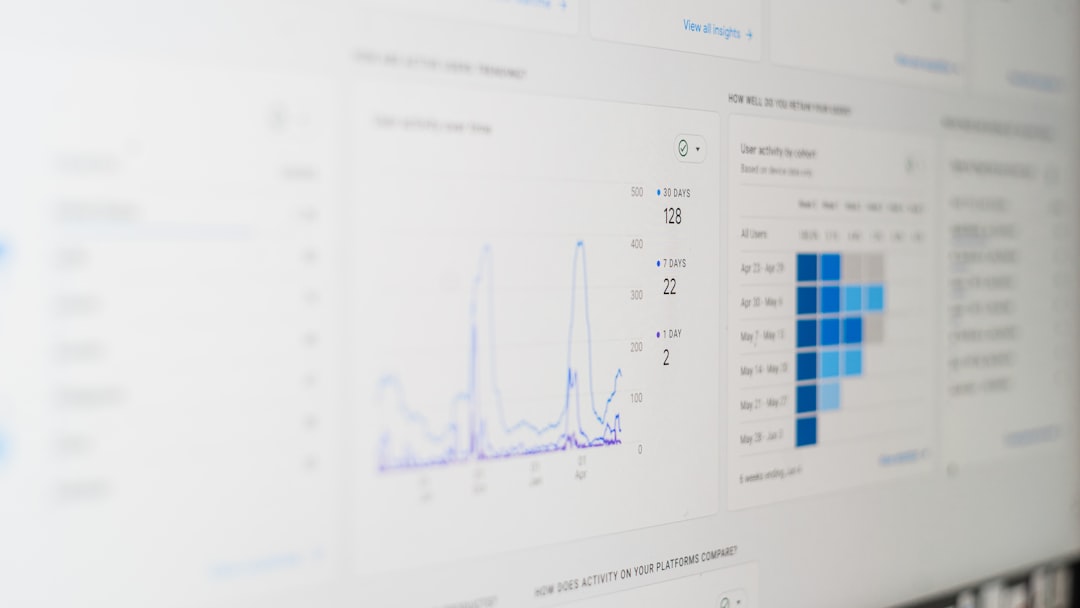SQL for Marketers: Queries That Matter
As businesses become increasingly data-driven, the line between marketing and data analysis gets thinner. Modern marketers are now expected to not only craft creative campaigns but also analyze data, extract actionable insights, and measure ROI effectively. This is where SQL—or Structured Query Language—enters the picture. For marketers, SQL is more than a coder’s tool; it’s a bridge to the treasure trove of data sitting in company databases.
Why Marketers Should Learn SQL
Table of Contents
SQL empowers marketers to:
- Access raw data: No more waiting for reports from data analysts. Write queries and get exactly what you need when you need it.
- Understand customer behavior: Analyze how users interact with your website, app, or emails using actual historical data.
- Evaluate campaign performance: Compare campaigns, identify high-performing customer segments, and improve targeting.
- Generate custom reports: Create dashboards and reports customized to your marketing metrics, timeline, and KPIs.
Arming yourself with SQL skills can exponentially increase your value as a modern marketer. Let’s dive into the types of queries that truly matter.
1. Basic Queries: Know Your Customers
The first step in any marketing effort is understanding your audience. You can use SQL to fetch filtered customer lists, analyze demographic trends, or segment users for campaigns.
Find all subscribed users:
SELECT first_name, last_name, email
FROM users
WHERE subscribed = true;This simple query gets you a list of all users who are currently subscribed—a fundamental starting point for any email campaign.
Segment users by country:
SELECT country, COUNT(*) AS user_count
FROM users
GROUP BY country
ORDER BY user_count DESC;Need to know where most of your users are coming from? This query will show you a list of countries, ranked by user count, allowing geo-targeting in your next international campaign.

2. Behavioral Queries: Track Engagement Patterns
Beyond just knowing who your users are, understanding how they’re engaging with your product or content is key. SQL can help you analyze behavioral data collected in log or event tables.
Identify most popular landing pages:
SELECT landing_page, COUNT(*) AS visits
FROM user_sessions
GROUP BY landing_page
ORDER BY visits DESC
LIMIT 5;Use this query to discover which pages are driving the most traffic, and tailor your ads or SEO strategy around these entry points.
Measure email click-throughs:
SELECT campaign_id, COUNT(*) AS clicks
FROM email_clicks
GROUP BY campaign_id
ORDER BY clicks DESC;This is perfect for benchmarking different email campaigns and identifying which ones are generating the most engagement.
3. Funnel Analysis: Understand User Journeys
Funnels help you visualize user progression from awareness to conversion. With SQL, you can create funnel metrics tailored to your business model.
Example: Website signup funnel
SELECT
COUNT(DISTINCT user_id) FILTER (WHERE step = 'landing_page') AS visited,
COUNT(DISTINCT user_id) FILTER (WHERE step = 'signup_form') AS signup_started,
COUNT(DISTINCT user_id) FILTER (WHERE step = 'account_created') AS signed_up
FROM funnel_steps;This query shows you how many users dropped off at each step of your signup funnel, enabling you to identify potential friction points.

4. Campaign Analysis: Dig Into ROI
One of the most valuable applications of SQL in marketing is understanding the ROI of your campaigns.
Calculate revenue from a specific campaign:
SELECT SUM(total_amount) AS campaign_revenue
FROM orders
WHERE campaign_id = 7;Pair this with your campaign spending data to get a better understanding of profitability.
Compare performance between campaigns:
SELECT campaign_id, COUNT(*) AS orders, SUM(total_amount) AS revenue
FROM orders
GROUP BY campaign_id
ORDER BY revenue DESC;This gives you a view of which campaigns are driving not just traffic but revenue—a more holistic measure of success.
5. Cohort Analysis: Track Long-Term Impact
Cohort analysis is a powerful technique to track how different user groups behave over time. This is invaluable when you’re evaluating retention, lifetime value, or the delayed impact of a campaign.
Revenue generated per signup cohort:
SELECT
DATE_TRUNC('month', signup_date) AS cohort_month,
SUM(total_amount) AS total_revenue
FROM users u
JOIN orders o ON u.id = o.user_id
GROUP BY cohort_month
ORDER BY cohort_month;This tracks how much revenue was generated by each signup cohort, segmented by month. Use this to understand the long-term conversion from lead to paying customer.
Marketing Metrics You Can Track With SQL
Here are some highly actionable marketing metrics you can calculate using SQL:
- Customer Lifetime Value (CLV)
- Customer Acquisition Cost (CAC) (when paired with campaign spend data)
- Email Open Rate and Click-Through Rate
- Signup-to-Purchase Conversion Rate
- User Retention and Churn Rates
Best Practices for Marketers Learning SQL
If you’re a marketer eager to learn SQL, follow these tips to get the most out of it:
- Start small: Begin with SELECT queries before moving on to more complex JOINs and aggregations.
- Use sandbox environments: Practice in a copy of your database, not production data.
- Collaborate with analysts: Don’t be afraid to ask your data team for guidance or access to useful datasets.
- Automate routine queries: Save and schedule frequently-used queries using tools like Mode, Looker, or Metabase.
Tools That Help Marketers Use SQL More Efficiently
Even as SQL becomes more accessible, there are tools that make it even easier for marketers to apply and automate SQL-based insights:
- Google BigQuery: For large-scale data analysis, especially if you’re running campaigns across Google Ads and Analytics.
- Redash or Metabase: Great for visualizing query results as charts or dashboards.
- Data Studio with SQL connectors: Combine the flexibility of SQL with easy visual reporting.
Conclusion
The days when marketing decisions were based on instinct are long gone. Today, data is king—and SQL is one of the most powerful keys to it. Whether you’re segmenting customers, evaluating campaigns, or building retention strategies, SQL gives you control over your marketing data like never before.
Learning SQL may feel intimidating at first, but it’s a critical step toward becoming a truly data-savvy marketer. With just a few foundational skills, you’ll unlock a whole new level of insight, precision, and performance for your marketing initiatives.
So the next time you’re staring down a dashboard, wondering how to make sense of all that data—remember, your answer may just lie in a simple SQL query.







